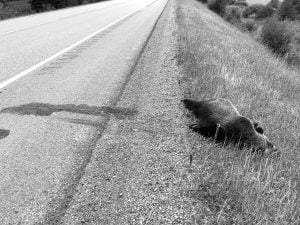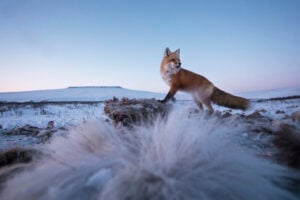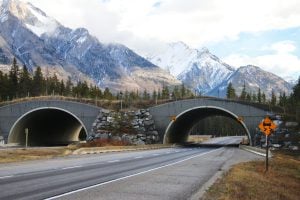Their name alone is enough to make many people feel a bit itchy. With their dreaded buzz and capacity to cover a hiker’s leg in red spots, mosquitoes can be a damper for outdoor enthusiasts.
The typical mosquito season in British Columbia can be anywhere between April to late September, depending on the weather. This year, however, a rising mosquito annoyance has been reported, and B.C. residents around the lower mainland and Fraser Valley want to know why.
According to Carl Lowenberger, a professor of entomology and parasitology at Simon Fraser University in British Columbia, the increase is real, but not something they haven’t seen before.
“[There are] no more mosquitoes than there were the last time there was a large snowpack and heavy rainfall.”
Lowenberger has been studying mosquitoes for more than three decades and explains that in B.C., there are different groups of mosquitoes; some of which are not prevalent every year.
“One type of mosquito overwinters as adults. They sit in your attic, and wait for it to warm,” says Lowenberger. “They’re the first ones who come and bite you in the springtime.”
The second group of mosquitoes, Lowenberger explains, are the Aedes vexans. These are the mosquitoes being noticed, and responsible for the spike.
Aedes vexans mosquitos are different from other mosquitoes because they lay their eggs just above the waterline, as opposed to in water. For the eggs to hatch, they need to be flooded — much like a plant seed.
Lowenberger says that due to the heavy rain and snowpacks prevalent over the last year, B.C. has experienced a lot of flooding.
“In fact, this time of year, we’re normally worried about forest fires. Up to a few weeks ago, we were worried about flooding, and people were being evacuated from some of the rivers. So we’ve had a lot of excess water.”
Without water to flood the eggs, they will stay dormant.
“They are just sitting there, waiting for the right stimulus, and when the right stimulus comes along, they hatch.” And this is exactly what Lowenberger says has happened.
In the past several years, there has not been enough water to allow the Aedes vexans eggs to hatch. Now, with all the flooding, these areas in B.C. are experiencing the emergence of up to four years of eggs hatching all at once.
Why do some people get bitten more than others? There’s no real reason identified.
“The scientific answer,” says Lowenberger, “is we don’t know.” He explains that scientific tests have been done to study people’s blood type, skin colour, and bacteria on the skin, but nothing has shown why some people are more attracted than others.
Some people will also respond differently to the bites of various species of mosquitoes.
“When a mosquito bites, she injects saliva into your body. She does this to prevent the blood from coagulating, but also to put a bit of a painkiller in there so that you don’t notice her biting,” says Lowenberger. “Each mosquito species will produce different proteins to do that, and therefore your body can respond differently against the saliva of different mosquitoes.
A spike in mosquitoes may cause concern for some people, but Lowenberger says there is no reason for the public to worry.
“It’s just a nuisance factor right now.”
Suggestions to avoid being bit include wearing long sleeves and pants and using repellent. Lowenberger also suggests avoiding going out early in the morning and at dusk, as these are times when mosquitoes are most likely to bite





